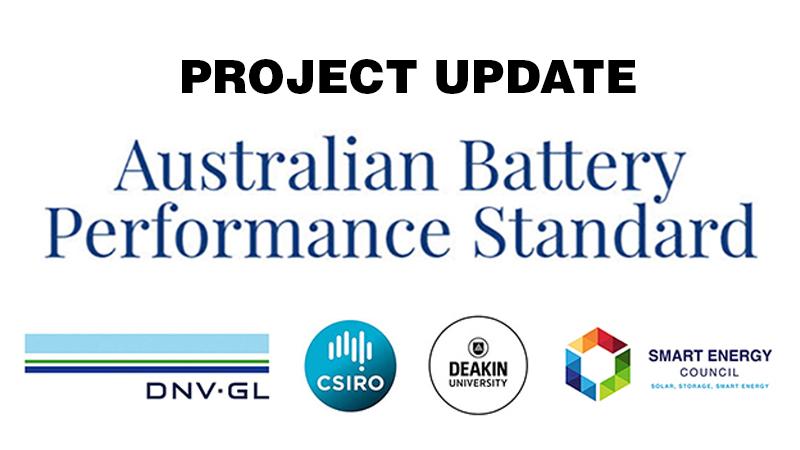Australia is seen by the global solar and battery storage industry to be a leading market. Efforts to have standardised performance data is continuing to move forward, assisting distributors and installers to assess battery performance – and potentially stopping suppliers from ‘gaming the system’.
The ABPS Project is moving forward in its mission to propose a performance standard for battery storage systems connected to domestic/small commercial solar PV systems under 200kWh/100kW. The project is a collaborative effort between energy consultancy and testing group DNV GL, the CSIRO and Victoria’s Deakin University.
In a webinar hosted by the Smart Energy Council last week, it was announced that the ABPS project has completed its first analytical stage is moving into the testing phase. In the webinar, CSIRO Energy’s Anand Bhatt and DNV GL Australia’s Felix Liebrich discussed the methods and analysis used in the first stage, completed at the end of May, and spoke to the nearing of a draft performance standard that the project hopes to lodge in 2020.
According to Liebrich, the standards are intended to apply to testing undertaken by the manufacturer or by system integrators. The standards are not intended for installers. If ratified, the ABPS standards will enable manufactures and system integrators to demonstrate comparable, or “like-for-like”, test results accessible to consumers.
As it stands now, manufacturers self-report battery performance, and there are no common testing parameters that all manufacturers use for consistency of results across the board. Bhatt noted, in response to a question from a webinar attendee, that there is evidence of some manufactures “gaming” their reportage of battery performance. For instance, if a manufacturer does not test its battery through full cycles of discharge and recharge, in-house testing would not reveal any deterioration in performance or battery-life. The draft standard for testing should “provide usable numbers, estimates of efficiency losses…we’re trying to remove that sort of gaming,” said Dr Bhatt.
The project is not going to reveal which specific manufacturers are being tested, as yet, although all main manufactures who are selling battery connections to solar PV in Australia are said to be part of the project.
During Stage 1, an analysis of local and international standards was undertaken and it was found that there was no standard with the focus of which ABPS was setting out to complete. “There are various standards… addressing particular battery types, battery chemistries, or particular performance metrics but there is no standard looking to do what we are trying to do,” said Liebrich.
The project is expected to conclude in May 2020 whereby its draft standards will be submitted to Standards Australia.
This content is protected by copyright and may not be reused. If you want to cooperate with us and would like to reuse some of our content, please contact: editors@pv-magazine.com.









By submitting this form you agree to pv magazine using your data for the purposes of publishing your comment.
Your personal data will only be disclosed or otherwise transmitted to third parties for the purposes of spam filtering or if this is necessary for technical maintenance of the website. Any other transfer to third parties will not take place unless this is justified on the basis of applicable data protection regulations or if pv magazine is legally obliged to do so.
You may revoke this consent at any time with effect for the future, in which case your personal data will be deleted immediately. Otherwise, your data will be deleted if pv magazine has processed your request or the purpose of data storage is fulfilled.
Further information on data privacy can be found in our Data Protection Policy.